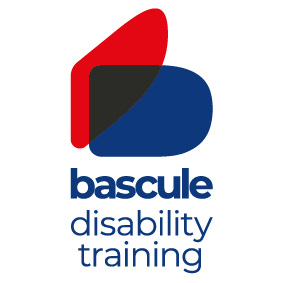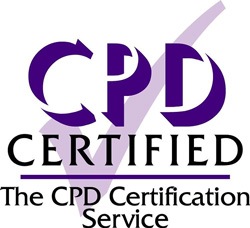Retaining staff with disabilities

Here at Bascule, we often talk about becoming a more inclusive employer.
We’ve discussed how to create strategies to improve inclusivity, offered tips on how to develop an accessible recruitment process, and shared guidance on how to make the cultural changes that will help businesses to attract staff with a disability.
But what happens after you attract and recruit employees with disabilities? How do you continue to provide the right support to ensure that you retain these staff members? After all, no organisation wants a high staff turnover. It’s been proven to lower morale, reduce productivity, impact reputation, leave you with knowledge gaps, and, with the average cost of filling a vacancy being around £6,125 (rising to £19,000 for managers), recruiting can be an expensive game!
So, how do you support staff members with disabilities in a way that they thrive within their roles and remain employed for the longest possible time?
First of all- it’s a well-known fact that employees with disabilities are notoriously loyal IF they are supported well. However, given that people with disabilities are reported to be nearly twice as likely to leave their jobs as non-disabled people, it becomes very apparent that many businesses are failing to provide such support.
SCOPE reported that the main reasons for people with disabilities leaving their jobs were negative attitudes and discrimination, challenges in receiving reasonable adjustments and inflexible working patterns. All of these can be tackled by developing awareness and creating a cultural shift to become more inclusive.
Changing perceptions – developing awareness
By addressing staff perception and company culture, many of the issues causing people with disabilities to leave their jobs can be addressed. For example, SCOPE has also stated that 28% of people with disabilities who had ‘fallen out of work’ said they had experienced discrimination, either from a line manager or colleague and 90% of all people with disabilities who had experienced discrimination at work, said it led to them leaving.
Adopting a strong disability awareness training campaign (and implementing that training as an on-boarding process for all employees) would be a good place to begin changing company perceptions, and staff understanding of disability.
This should focus on senior staff members and preferably, managerial staff, specifically addressing how best to support staff with disabilities. This training should cover aspects including language, etiquette, communication, reasonable adjustment, hidden disabilities-and so on. (Follow this link to see our online training dates or contact us to learn more about bespoke training).
Training should help eliminate the common misconceptions and myths that are associated with people with disabilities. For example- one in three people in the UK believe that people with disabilities are less productive than non-disabled people. Can you imagine how that may unconsciously impact a colleague or manager’s perception of an employee with a disability?
For that reason, you could also consider unconscious bias training for those in managerial positions and with recruitment responsibilities. (Read our recent blog on unconscious bias here).
Failures around reasonable adjustment
Another major reason for staff leaving a position, is due to a lack of progress through reasonable adjustment. Research conducted by the Business Disability Forum, backed this up, revealing that some staff are having to constantly push for change, or worse still, make adjustments themselves.
The survey found:
- 78 per cent of employees with disabilities said they, rather than their employer, had to initiate the process of getting adjustments.
- 56 per cent of employees with disabilities said there are still disability related barriers in the workplace after adjustments have been made.
- Only 37 per cent of employees with disabilities feel their employer is genuine about removing all disability-related barriers and making the workplace inclusive for disabled employees.
- Only 18 per cent of employees with disabilities said their adjustments have removed all barriers in the workplace.
The Business Disability Forum further proved the importance of reasonable adjustment to job retention reporting that out of those receiving support, 48% said it helped them to stay in their job. Also, we do reasonable adjustment for all staff through display screen regulations, body posture problems caused by incorrect screen often results in a new chair or an adjusted screen. My point being is that that is considered normal yet other reasonable adjustments are considered a ‘barrier’.
Again, by developing awareness and creating opportunities to better understand disability, a business can create a more empathetic workplace. A training programme that allows managers to fully understand what reasonable adjustment is, what is required, and why it is critical, will mean it is taken more seriously, meaning staff are more likely to remain with the company.
Flexibility
After the pandemic, most businesses were forced to roll out remote and flexible working policies, and for a long period many continued with these. However, businesses are now leaning towards working approaches that demand stronger office presence. A recent US report proved this when it revealed that 90% of companies plan to implement return-to-office policies by the end of 2024. It also stated that (30%) may consider dismissing employees who would not comply.
It should always be remembered that offering some form of flexibility to staff with disabilities not only has a positive impact on their performance, but also enhances the likelihood of a business retaining their services. We want staff after all to bring their best selves to work!
According to SCOPE, 60% of people with disabilities who have fallen out of work were not offered the chance to try hybrid working. However, the impact of offering this benefit to staff with disabilities was very positive:
- 75% said that it allowed them to manage their wellbeing better.
- 71% said it gave them the ability to manage disability related illness better.
- 75% said it the location helped them to concentrate better.
- 69% said it helped them manage workload better and deliver work within timelines.
- 61% said it gave them the ability to work on another location with support.
Obviously, some roles require office attendance, but where possible, making positions flexible, remote or hybrid positions will not only enable staff with disabilities to reach their best potential, it will also improve staff retention.
Other support that improves retention
Pay people equally! : Analysis published by the TUC (2023) shows that non-disabled workers earn around a sixth (14.6%) more than disabled workers. Needless to say, all employers should practice fair and equal pay. Doing so will mean inclusivity is taken seriously, and staff will likely be more inclined to stay- whilst others become attracted to your business!
Get creative with accessible workspaces: Consider making adjustments to your environment to best accommodate all disabilities, and staff will be more inclined to stay. For example- anxiety levels can be high for those with disabilities, (especially those that are neurodiverse), so maybe offer an environment that can provide relief from noise, or general busyness- using things like private pods or quiet zones with soundproof walls. They also provide a good place for everyone to simply concentrate! You could also try adapting areas that provide different settings for senses, considering light, temperature, scent, ambience and so on.
Embed diversity across the company: To truly embrace disability inclusion, you can embed it within everything. One method of doing so is by creating an Inclusion Council- or diversity steering group. This way, the company has an organised group that ensures all developments and projects are accessible and consider employees with disabilities, discussing developments, reviewing progress, and being involved in all aspects of the organisation. These should, where possible be led by staff members with disabilities, of course, and should definitely include staff members at all levels of seniority, with a least one C-Suite Level member.
In summary- people with disabilities will remain within the role they have if a fair, equal, safe, and well supported workplace is provided. This is achieved by implementing a strong strategy to develop awareness, and by developing a companywide effort to become more disability inclusive. By developing an inclusive culture, ensuring reasonable adjustments are made, and managerial skills are maintained, people with disabilities will be able to bring the best version of themselves to work- whilst staff retention levels will be improved. And, if that support is genuinely provided with understanding, empathy and knowledge - employees with disabilities will also be empowered to reach beyond their full potential.
CHRIS JAY, MANAGING DIRECTOR, BASCULE DISABILITY TRAINING



